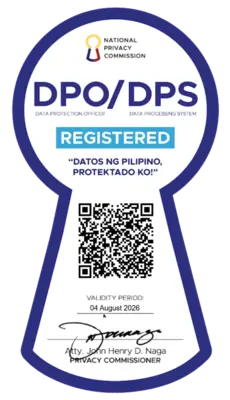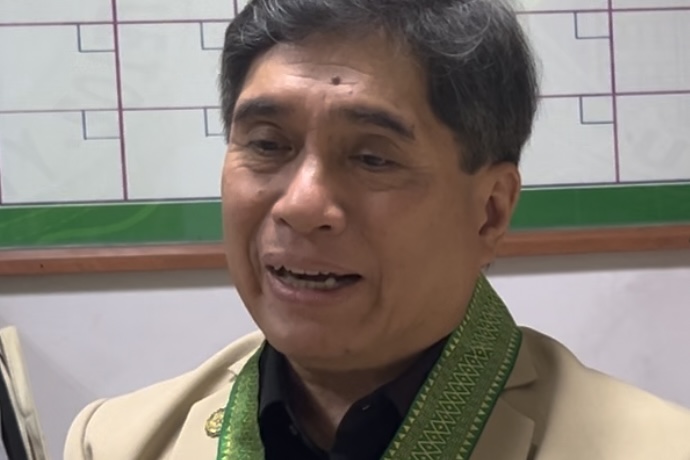Transforming research into practical and accessible biomedical devices is the main objective of the 3-day “Teknolunas 2024: 4th Philippine Biomedical Engineering Conference and Exhibits” at the University of San Jose-Recoletos (USJ-R) in Cebu City.
About 99.2 percent of biomedical devices are imported, said Dr. Nilo Bugtai, founding director of the De La Salle University-Institute of Biomedical Engineering Healthcare Technologies.
Prof. Bugtai, a Cebuano mechanical engineer and general chairperson of “Teknolunas 2024,” is at the forefront of the endeavor to gather science researchers, health professionals, students, and stakeholders in healthcare, among others, in an interdisciplinary collaboration that would turn research papers into biomedical devices which ensure every Filipino has access to high-quality healthcare regardless of economic status and geographical location.
The objective resonates the commitment of the Department of Science and Technology-Philippine Council for Health Research and Development (DOST-PCHRD) in funding researches and applications deemed significant solutions to various challenges in the healthcare system and delivery in the Philippines.
An example of the challenges is the need to meet practical applications of assistive devices and provide these to persons suffering from issues in mobility. Another is the local manufacture of the assistive devices to make these readily available, and not rely heavily on importation, a pursuit supported by Dr. Jaime Montuya, executive director of PCHRD, in a virtual message to organizers and participants.
Prof. Justin Wade Fernandez, for example, during the plenary session, shared on his journey at using biomedical devices for instrumentation, creating plantable devices, and biomedical imaging, all from its planning stage to its commercial executions.
Rev. Fr. Eduardo Celiz, president of USJ-R, said that the academe shares in the mission-vision of “Teknolunas” (a portmanteau of technology and the Filipino word “lunas” to mean remedy or cure) by responding to the urgent call for interdisciplinary collaboration.
As host of the conference with highlight on pitch competition of research papers, Fr. Celiz said that innovations must be transformed into biomedical devices that truly serve all.
“Just as Christ reaches out to heal, so too are we called to use our skills, knowledge, and innovations to serve humanity, especially the marginalized. Let us be guided by the spirit of service and love, knowing that our efforts here are more than just scientific and academic pursuits. They are a reflection of our commitment to embodying Christ’s love and care for all. Teknolunas is more than just an event, it is an opportunity to reshape the healthcare services landscape in our country,” Fr. Celiz emphasized.
PAPER PITCH
The pitching competition of research papers is seen to foster innovation and entrepreneurship in the field of biomedical engineering and health technologies.
It is geared at encouraging the development of innovative healthcare solutions, a platform for emerging entrepreneurs to present their ideas, promote collaboration between academia, industry, and government; and identification and support to promising projects that can transform healthcare delivery.
The pitch also serves as a platform for students, researchers, startups, and professionals to present their innovative ideas and solutions to address pressing healthcare challenges that are aligned to themes such as new medical devices or improvements to existing ones, health technology applications and software, biomedical research with commercialization potential. solutions for equitable and accessible healthcare delivery, innovations in medical informatics and health apps, among others.
On its 4th staging, “Teknolunas 2024” is expected to produce high-impact publications, new patent applications, and innovative products while also enhancing skills and knowledge through workshops and mentorship programs.
By facilitating policy recommendations and formalized collaborations, the event is seen to advance biomedical engineering significantly, promote equitable healthcare delivery, and strengthen the innovation ecosystem in the Philippines, positioning the country as a leader in health technology research and development.
The conference was set from September 4 to 6, 2024.
EXHIBITS
The event’s exhibits component showcased the latest advancements in biomedical engineering, health technologies, and innovative healthcare solutions. It provided an excellent opportunity for companies, startups, researchers, and academic institutions to display their products, prototypes, and research projects to a diverse audience, including industry professionals, academics, government representatives, and healthcare practitioners.
Exhibits featured state-of-the-art biomedical devices and health technologies with opportunities at product demonstrations and hands-on experiences.
Above all, the exhibition facilitated knowledge exchange and inspired new ideas in healthcare innovation. For example, exhibits on prototypes of assistive devices used by people with challenges in mobility have expanded understanding of possibilities that these can be produced locally, offering hope that these can be made accessible to more Filipinos despite their socioeconomic status and no matter where they are located in the country.




